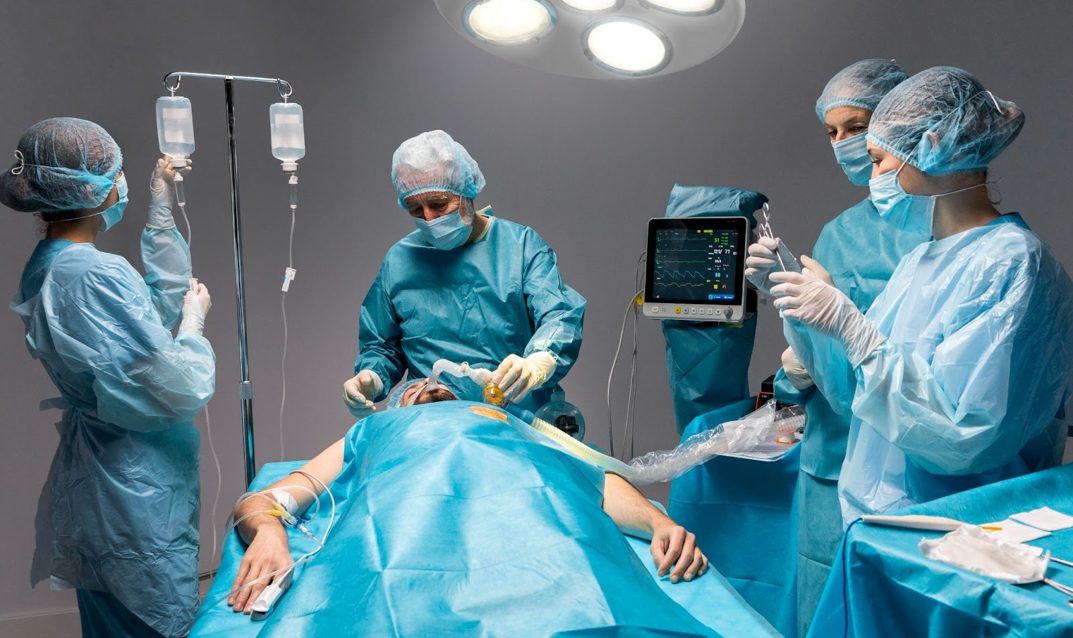
@ShahidNShah


Have you noticed any swelling around your neck?
Is it harder to swallow or breathe lately?
Don’t ignore these signs; they could be signs of an enlarged thyroid, also known as a goitre. While some goitres are harmless, others might need immediate treatment or even surgery.
The thyroid is a small gland in the front of your neck. Its main function controls important functions like metabolism, heart rate, and body temperature.
When it becomes enlarged, you might notice these symptoms:
There are many reasons for an enlarged thyroid to happen. The major ones include iodine deficiency, hormonal imbalance, or the presence of nodules.
Though not all goitres require surgery, many of them can be treated with medicine or just monitored over time. But in some cases, surgery seems the only option.
But if you face any of these signs, seek professional help as soon as you can:
If you are dealing with any of these symptoms, it is a great choice to consult a qualified Thyroid & Endocrine Surgeon. They can look at the issue and find the best option as per the diagnosis.
Technical advancements play a very important role in diagnosis. Imaging tools like ultrasounds, CT scans, and radioactive iodine uptake tests help endocrinologists:
These insights are important in determining whether a surgery is needed or not.
Beyond imaging, lab tests and molecular diagnostics are also very important for enlarged thyroid surgery. Blood tests measure TSH, T3, T4, and antibodies to know about thyroid function. In some cases, fine-needle aspiration (FNA) biopsy is required to look for nodules.
Advanced genetic testing and biomarkers also help in personalised treatment.
If a removal is suggested by your doctor. Then the doctor will most likely perform one of the given surgeries:
The surgery is usually completed in 1 to 2 hours and is done under general anaesthesia. After the surgery, our patients are kept under observation overnight and then discharged the very next day.
The aftercare of surgery involved:
Like every surgery, enlarged thyroid removal comes with its risks.
They usually include:
But the benefits outweigh these risks. The benefits of the surgery are:
In some cases, thyroid issues are hereditary; hence, they can’t be avoided. But here is what you can do to minimise the risks:
An enlarged thyroid doesn’t always mean surgery, but it should not be ignored. If you notice any of the symptoms mentioned in the article, seek professional help and get evaluated. If diagnosis is done in earlier stages, it might avoid the need for surgery altogether.
Always seek professional help if you feel any disc

Picture this: you’re reaching for your morning coffee when suddenly, a lightning bolt of pain shoots from your lower back, through your buttock, and down your leg like an unwelcome electrical …
Posted Jun 24, 2025 Wellness & Prevention
Connecting innovation decision makers to authoritative information, institutions, people and insights.
Medigy accurately delivers healthcare and technology information, news and insight from around the world.
Medigy surfaces the world's best crowdsourced health tech offerings with social interactions and peer reviews.
© 2026 Netspective Foundation, Inc. All Rights Reserved.
Built on Feb 17, 2026 at 4:40am